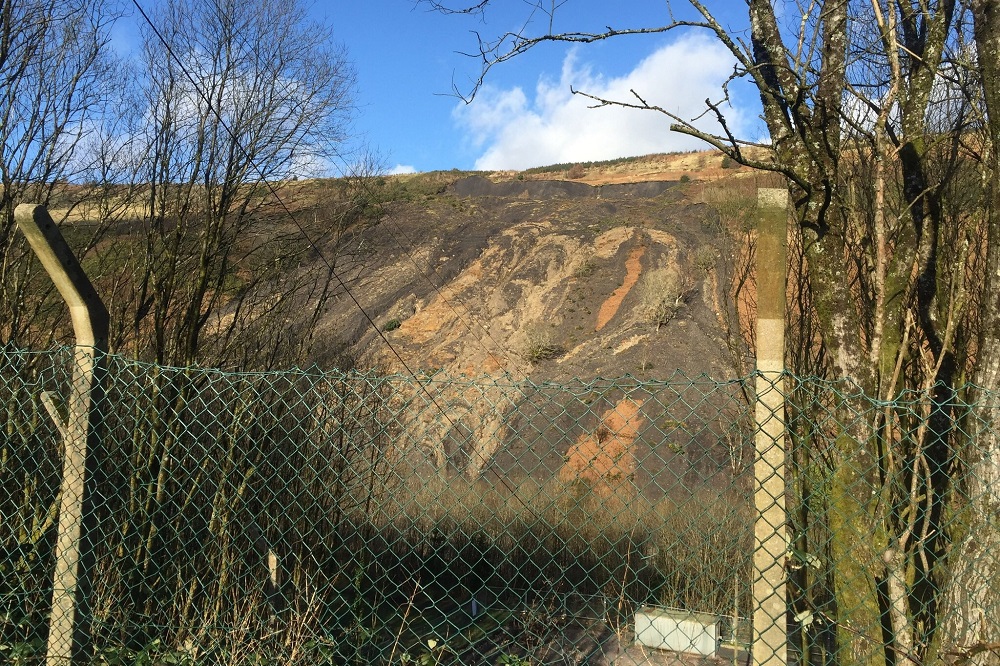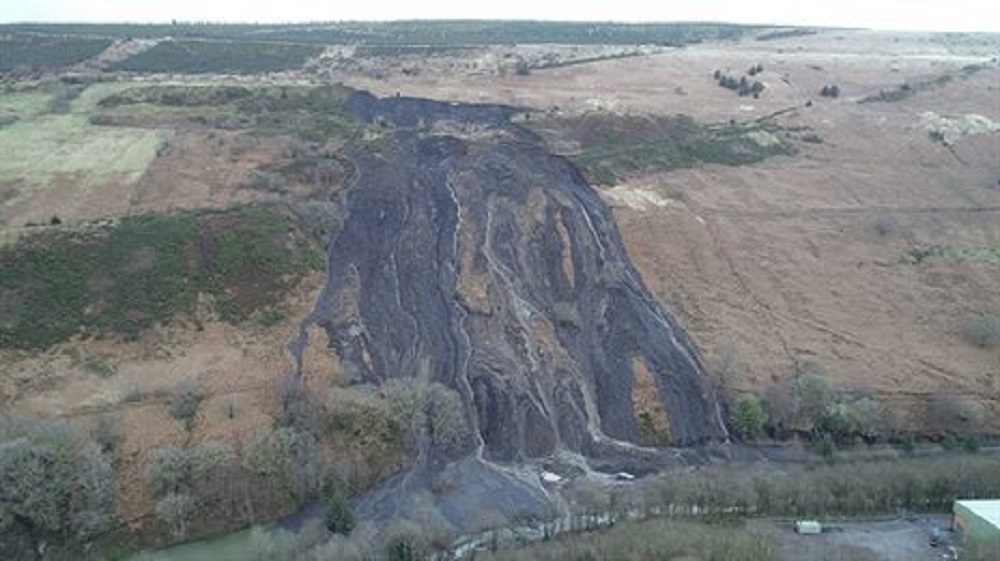‘Not fit for purpose’: Review of laws around inspection and maintenance of Wales’ coal tips

Anthony Lewis, local democracy reporter
The Welsh Government is reviewing laws around inspection and maintenance of coal tips which it said are “not fit for purpose.”
Lesley Griffiths the Welsh Government’s minister for energy, environment and rural affairs released a statement on the safety of Wales’ old coal tips in the lead up to the first anniversary of the landslide at the Llanwonno coal tip in Tylorstown.
During February 2020, Wales suffered unprecedented effects from storms Ciara and Dennis which led to the slip in the Rhondda Fach.
At a summit following the land slip at Tylorstown, a joint taskforce was established by the Welsh and UK governments to assess the immediate status of coal tips in Wales and review the existing policy and legislative framework relating to disused coal tip management.
Its role is to look at the number of tips, inspection, maintenance, emergency preparedness, existing policy and legislation and funding.
The Coal Authority was commissioned to undertake urgent ground inspections of coal tips in Wales, identifying any urgent works and the risk status of each tip and a public helpline has been set up.
The first round of tip inspections was completed in July 2020 and the second round of inspections of high-risk tips is due to finish this month.

There is no standard or consistent approach to risk assessment in the Mines and Quarries (Tips) Act of 1969 and the Coal Authority has been using Rhondda Cynon Taf’s method of assessment to judge the risk of tips with A being the lowest risk and D being the highest meaning there’s a risk to life or property.
The current legislation does not mandate regular inspections of disused tips or once a tip becomes disused.
The Law Commission is undertaking a review of current legislation which will run for 15 months and is set to provide recommendations for a future bill.
The consultation should start in spring this year with the final report due in early 2022 and there is potential for a remediation programme.
Negotiations are ongoing with the UK Government over long term funding but £9m has been secured for this financial year towards coal tip safety.
The coal authority has supported councils by doing some of the inspections on these high-risk tips which have identified the maintenance requirements and the time-scales within which they need to be completed.
‘Complexity’
Ms Grffiths said: “In a small number of cases, the inspections have highlighted works, which are immediately required to ensure the tip is being maintained at a standard necessary to enable routine monitoring. In these cases, we have urged local authorities to carry out the necessary works without delay.
“In partnership with the Coal Authority, local authorities, WLGA and Natural Resources Wales, the taskforce has made significant progress in gaining a detailed picture of the coal tip landscape across Wales, with 2144 coal tips identified, predominately in the South Wales Valleys.
Councils must now ensure any necessary works identified from the inspections are done, working with the Coal Authority and any private owners, to safeguard the structural integrity of the tips within their areas.
A number of councils have commenced works, including at Tylorstown, where the Rhondda Fach River is being cleared to enable the main works programme to start this summer.
‘Robust’
Ms Griffiths said: “The complexity and timeliness of this type of work should not be underestimated. There are a number of factors to be considered in relation to any remediation work, not least environmental.
“A review of the current legislation undertaken by the taskforce concluded it is neither sufficiently robust nor fit for purpose, in relation to inspection and maintenance regimes.”
Ms Griffiths said: “The taskforce is developing policies in parallel to the work of the Law Commission. The longer term policy objective is to develop a consistent approach for use across Wales for risk assessments and risk categories. Management controls, including a central database, for all tips will also be developed.
“A robust inspection and maintenance regime will ensure safeguarding our communities remains a priority, with people living near coal tips feeling safe and secure. The taskforce has also been working with All Wales Risk Group to raise awareness with local resilience forums about coal tip safety links to community risk registers and emergency plans.”
To support the future monitoring regime to continually assess the stability of coal tips, Welsh Government is providing funding to support the trial of sensor equipment, which can be placed on coal tips and monitor any movement, enabling different methods of action to be assessed to ensure the most appropriate approach is applied across high-risk tips.
“Coal tips are a legacy of Wales’ industrial history, which pre-dates devolution.
“However, the risks and liabilities associated with this legacy are not reflected in the current fiscal framework.
“The funding required for urgent remediation and maintenance works has been negotiated with UK Government for 2020/21 as part of the funding package to support recovery following the storms last year.
“The £9 million received will be used to support the Tylorstown recovery work and immediate emergency maintenance required at other high-risk tips.
“The long-term remediation programme is likely to run for up to 10 years and will require a comprehensive funding package.”
“We could still see further heavy rainfall in Wales this winter. This can increase flood risk as well as posing a risk to tip safety in some circumstances. ”
Members of the public can report any concerns about coal tips or get safety advice from the Coal Authority’s 24/7 helpline on 0800 021 9230 or via [email protected].
Support our Nation today
For the price of a cup of coffee a month you can help us create an independent, not-for-profit, national news service for the people of Wales, by the people of Wales.






